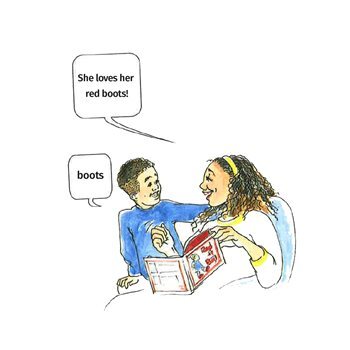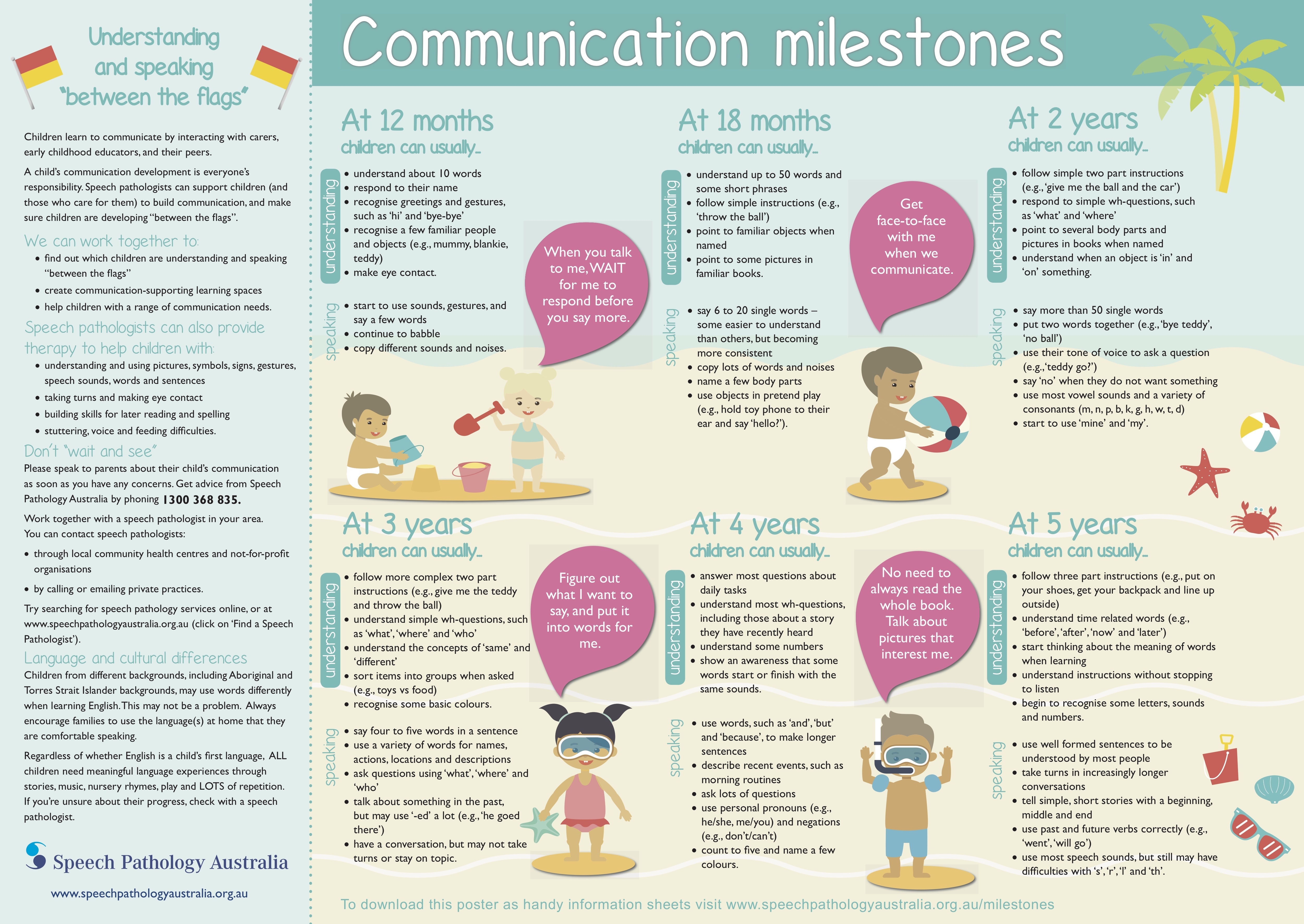The important skills your child needs for reading success are best learned through fun, everyday activities.
- Turn book reading into book sharing. Rather than just reading a book to your child, make book sharing an interactive process where you involve them in the story. Before turning the page, wait to give your child an opportunity to say something about the story. Try making comments about what you’ve read, to help them understand what is happening. Ask them questions about the characters – what do they think they are thinking and feeling, what do they think they might do next?
- Develop your child’s print awareness. Track your finger along under the words as you read to help them learn that we read from left to right. Point out the words on the cover of books or their favourite DVD to help them make the link between the words they hear and the letters they see.
- Build critical thinking skills during storytelling. To be able to understand stories, children need to be able to ‘read between the lines’ and figure out what’s going on in a story – even when it’s not stated. You can help build your child’s thinking skills and story comprehension during book sharing. Pause before turning the page and wonder aloud about what might happen next, to see if your child can predict the next step. These critical thinking skills will be important when they commence school.
- Read the same book again and again. Children love reading the same books over and over. (It’s us adults that tend to get bored!). Repetition is important is helping your child remember and understand new words.
- Use play time to bring stories to life. Use toys and equipment to act out your child’s favourite stories with your child during play time. If it’s ‘The Very Hungry Caterpillar’, get a green sock and some toy food and recreate the story! This gives your child a chance to practice retelling stories (another important pre-literacy skill!). Physically experiencing different ideas can also make it easier for young children to understand new concepts.
- Every story has merit when it comes to engaging your child and supporting their language and literacy development. Even simple stories give you and your child an opportunity to question and analyse what is happening. Find the books you loved as a child, or go to the local library and let your child choose stories.
Some resources to help with choosing books includes:
The Children’s Book Council of Australia: http://cbca.org.au/
Book Trusts: The Ultimate List – Our 100 best children’s books: http://www.booktrust.org.uk/news-and-blogs/news/222/
Time Magazine’s The 100 best children’s books of all time: http://time.com/100-best-childrens-books/
Our Speech Pathologist can give you easy to use and effective strategies to promote early literacy skills before your child starts school.
Over the next few weeks, I will be sharing some of my favourite books for promoting conversation and early literacy skills.
What are your favourite books to share with your children?






